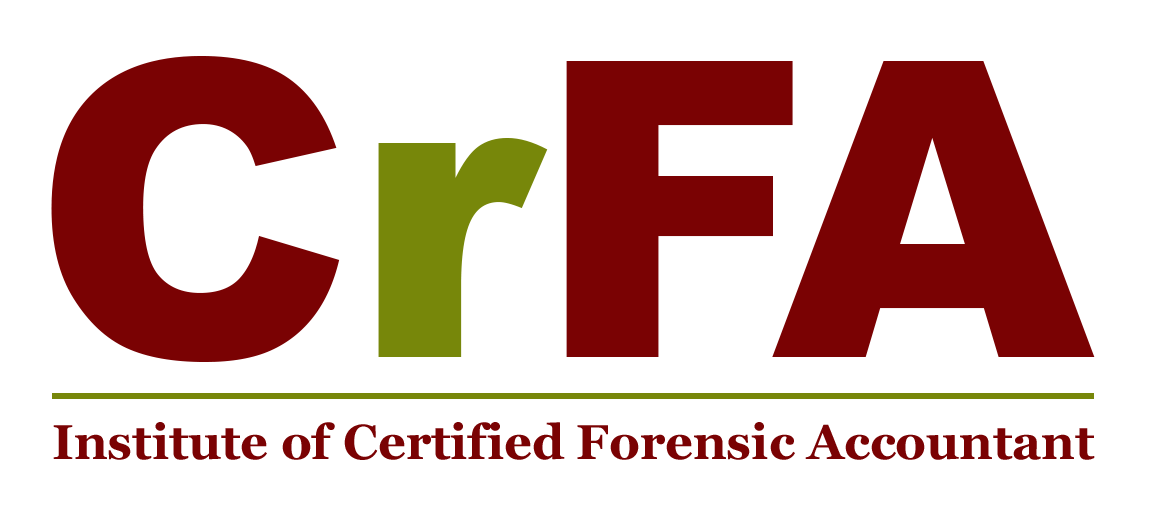━━━━━━━━━━━━━━━━━ Resources ━━━━━━━━━━━━━━━━━
Best Practices in Forensic Accounting

The Institute of Certified Forensic Accountants (ICFA) is committed to promoting the highest standards of professionalism, ethics, and excellence in forensic accounting. Best practices are essential to ensuring that forensic accountants conduct investigations with integrity, accuracy, and thoroughness. By adhering to these best practices, ICFA members uphold the credibility and trustworthiness of the profession while delivering valuable insights in financial investigations and fraud detection.
1. Maintain Professional Integrity
Integrity is the cornerstone of forensic accounting. ICFA members are expected to conduct themselves with honesty and transparency in all aspects of their work. This includes providing unbiased and objective analyses, avoiding conflicts of interest, and adhering to the ICFA Code of Professional Conduct.
- Always present facts and findings accurately, without exaggeration or manipulation.
- Disclose any potential conflicts of interest before taking on an investigation.
- Uphold confidentiality and protect sensitive financial information.
2. Adhere to Ethical Standards
Forensic accountants must adhere to strict ethical guidelines when conducting financial investigations. ICFA promotes ethical behavior in every aspect of the profession, from gathering evidence to reporting findings.
- Follow established ethical guidelines when collecting, analyzing, and presenting evidence.
- Avoid any activities that could be perceived as unethical or compromising the integrity of the investigation.
- Ensure compliance with applicable laws and regulations.
3. Conduct Thorough and Accurate Investigations
A key responsibility of forensic accountants is to conduct comprehensive and meticulous investigations. This involves analyzing financial data, identifying discrepancies, and collecting evidence that supports clear and defensible conclusions.
- Perform in-depth reviews of financial records, transactions, and accounting systems.
- Ensure that all findings are supported by credible evidence, with documentation for each step of the investigation.
- Use advanced tools and technologies, such as forensic accounting software and data analytics, to enhance accuracy and efficiency in investigations.
4. Stay Updated on Industry Trends and Technologies
Forensic accounting is a dynamic field, with new trends, tools, and challenges emerging regularly. ICFA members are encouraged to stay informed about the latest advancements in forensic accounting, fraud detection, and regulatory changes to remain effective in their roles.
- Participate in Continuing Professional Development (CPD) to stay current on industry practices and legal requirements.
- Adopt the latest tools and technologies for fraud detection, data analysis, and digital forensics.
- Attend ICFA webinars, workshops, and seminars to enhance your expertise and stay informed on evolving issues in forensic accounting.
5. Effective Communication and Reporting
Clear communication is vital when presenting findings in forensic accounting. Whether providing expert testimony in court or preparing reports for clients, forensic accountants must communicate their conclusions in a clear, concise, and professional manner.
- Write detailed and well-structured reports that explain the findings, methodology, and conclusions of your investigation.
- Ensure that your reports are easily understandable for non-technical audiences, such as clients, legal teams, or regulatory authorities.
- Present evidence and conclusions confidently in legal or business settings, ensuring that your findings can stand up to scrutiny.
6. Implement Strong Risk Management Practices
Risk management is essential for preventing fraud and ensuring the financial health of organizations. Forensic accountants play a critical role in identifying potential risks and advising on strategies to mitigate these risks.
- Identify weaknesses in internal controls and financial reporting systems that could make organizations vulnerable to fraud.
- Provide recommendations for strengthening internal controls, improving compliance, and enhancing fraud prevention measures.
- Assist organizations in developing fraud risk management frameworks to proactively detect and address potential threats.
7. Collaborate with Other Professionals
Forensic accountants often work closely with legal teams, auditors, investigators, and law enforcement. Successful collaboration is essential to ensure that all aspects of an investigation are covered and that findings are properly integrated into the legal or financial framework of a case.
- Build strong working relationships with other professionals involved in the investigation, sharing knowledge and expertise as needed.
- Leverage the expertise of auditors, IT specialists, and legal counsel to ensure that investigations are comprehensive and well-supported.
- Engage with the wider forensic accounting community, including other ICFA members, to exchange best practices and stay informed about new developments in the profession.
8. Emphasize Continuous Learning and Improvement
Forensic accounting is a continually evolving field, and professionals must commit to ongoing learning to stay ahead. ICFA encourages its members to pursue continuous education and professional development to remain competitive and effective in their roles.
- Enroll in ICFA certification programs and specialized courses to expand your expertise.
- Regularly review and update your skills in areas such as digital forensics, fraud examination, and regulatory compliance.
- Engage in mentorship or coaching programs to gain insights from experienced forensic accountants and develop new skills.
Adopt Best Practices with ICFA, inquire now.

